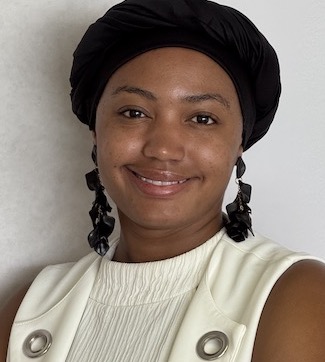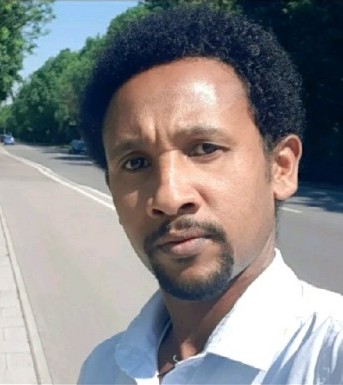About
About ILLH
The Institute for Land, Livelihoods and Housing is a centre at NUST bringing together the various disciplines at the university, locally and internationally around these key themes.
The institute was originally established in 2008 as the Integrated Land Management Institute to reflect the competences within the then-Department of Land Management. After a period of dormancy, was restructured in 2015 by a group of colleagues from architecture, land administration and property sciences; to enhance research and outreach activities between departments.
In 2017 the institute was awarded its first large commission to revise the national housing programmes by the Ministry of Urban and Rural Development (MURD). Today, the institute has undertaken the revision of the national housing policy, the development of the national strategy for informal settlement upgrading, enabled various research collaborations and partnerships, and facilitated several outreach activities.
The institute is financially supported by NUST as well as grants and project funds from partners like the German Cooperation Agency, UN Habitat, MURD, and international universities.
The institute lies within the School of the Built Environment, which houses many of the key disciplines related to urban development and infrastructure. Mechanisms have been established to enable university-wide collaboration on issues requiring transdisciplinary approaches. An example of this is the Urban Working Group, which reaches colleagues across the university concerned with this theme.
The institute is currently implementing a Transitional Plan to consolidate itself as a university-wide entity, implementing academic programmes such as the postgraduate diploma on informal settlement upgrading. Remove “starting 2024”.
The institute is currently implementing a Transitional Plan to consolidate itself as a university-wide entity, implementing academic programmes such as the postgraduate diploma on informal settlement upgrading (starting 2024).
The institute strives to engage with issues of key social relevance through partnership approaches, driven by a deep conviction that socio-spatial transformation is fundamental to enable a transition to more socially, environmentally and economically just future.
Partners
|
The African Union for Housing Finance (AUHF) |
|
The Association of Local Authorities in Namibia (ALAN) |
|
The Civil Society Working Group on Land Reform (CSO-WGLR) |
|
The French Development Agency (AFD) |
|
German Cooperation Agency (GIZ) |
|
Legal Assistance Centre (LAC) |
|
Ministry of Agriculture |
|
Water and Land Reform (MAWLR) |
|
Ministry of Urban and Rural Development (MURD) |
|
The City of Windhoek |
|
The Namibia Association of Local Authority Officials (NALAO) |
|
Namibia Domestic Workers Union (NDAWU) |
|
The Shack Dwellers Federation of Namibia (SDFN) and the Namibia Housing Action Group (NHAG) |
|
National Planning Commission (NPC) |
|
Network for Excellence in Land Governance in Africa (NELGA) |
|
Teachers Union of Namibia (TUN) |
|
The United Nations Innovation Technology Accelerator for Cities (UNITAC) Hamburg |
|
University of Namibia (UNAM) |
|
NUST student associations |
|
UN-Habitat / Global Land Tool Network (GLTN) |
|
National University of Lesotho |
|
National University of Lesotho (NUL) |
|
University of Eswatini |
|
Universidade Agostinho Neto |
|
University of Mauritius |
|
University of Antananarivo |
|
University of the Witwatersrand |
|
University of Cape Town |
|
Youth Initiative for Land in Africa (YILAA) |
|
University of South Africa |
|
Tshwane University of Technology |
|
Marondera University of Agricultural Sciences and Technology |
|
Botswana Association of Tribal Land Authorities (BATLA) |
|
Midlands State University |
|
Cape Peninsula University of Technology |
|
University of the Witwatersrand, School of Construction Economics & Management |
|
University of South Africa |
|
Justus-Liebig University Giessen |
|
University of Fort Hare |
|
University of Botswana |
|
North-West University |
|
Universidad de Antioquia |
|
Universidad de los Andes |
|
Universidad de los Andes |
|
Universidad Andina Simon Bolivar |
|
Universidade Pedogogica de Maputo |
|
Technical University of Munich (TUM) |
|
University of Bayreuth |
|
Prindex/Global Alliance |
|
NISANSA |
Management Structure
|
Prof Uchendu Eugene Chigbu |
Ms Cathrine Marenga |
 Ms Paulina Pius ILLH Administrator |
Ms Aune Shikongo |
Research Associates
Dr Solomon Dargie Chekole
Post-doctoral fellow Bahir Dar University, Ethiopia
|
|
For more information
You can read here a draft Research Agenda on Land, Livelihoods and Housing
Visit the Research page to look for the research themes we'll be pursuing through this framework.
Visit the social media of the institute: Twitter / Facebook / Instagram




